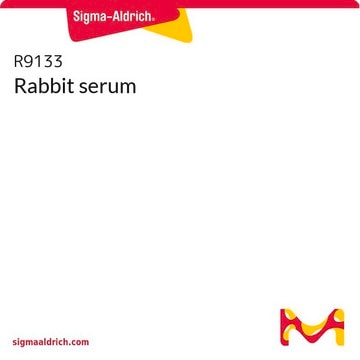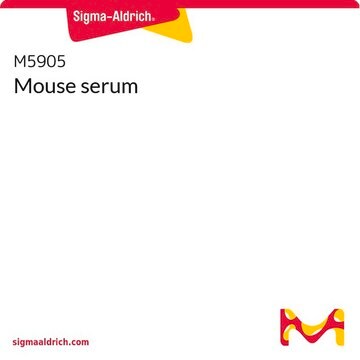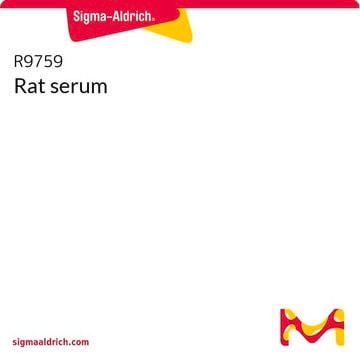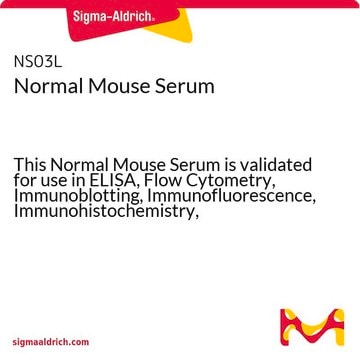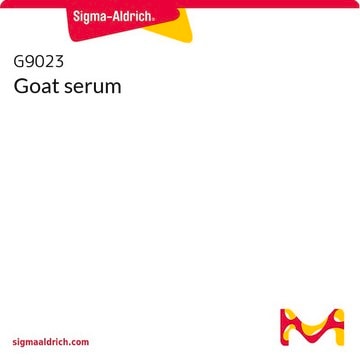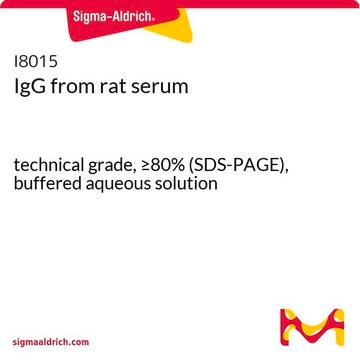R4505
Rabbit Serum
USDA approved, sterile-filtered, suitable for cell culture
Synonym(s):
Serum from rabbit, lapine sera, lapine serum, sera, serum
About This Item
Recommended Products
biological source
rabbit
Quality Level
sterility
sterile-filtered
quality
USDA approved
composition
hemoglobin (tested)
origin
USA origin
technique(s)
cell culture | mammalian: suitable
impurities
endotoxin, tested
mycoplasma, tested
shipped in
dry ice
storage temp.
−20°C
Looking for similar products? Visit Product Comparison Guide
Related Categories
Application
Rabbit Serum is used for the following applications:
- sampling for bacteriological cultures and culture conditions
- as a supplement in BSK-S medium in a study to evaluate the infectivity and pathogenicity of BL206 and B515 grown in BSK medium containing this product vs the medium containing Sigma rabbit serum R7136
- light microscopy, immunocytochemistry and immunohistochemistry.
- immunoelectron microscopy
Analysis Note
Storage Class Code
11 - Combustible Solids
WGK
WGK 3
Flash Point(F)
Not applicable
Flash Point(C)
Not applicable
Personal Protective Equipment
Certificates of Analysis (COA)
Search for Certificates of Analysis (COA) by entering the products Lot/Batch Number. Lot and Batch Numbers can be found on a product’s label following the words ‘Lot’ or ‘Batch’.
Already Own This Product?
Find documentation for the products that you have recently purchased in the Document Library.
Customers Also Viewed
Articles
Find answers to frequently asked questions (FAQs) about FBS and other serum products, and links to related products.
Find answers to frequently asked questions (FAQs) about FBS and other serum products, and links to related products.
Find answers to frequently asked questions (FAQs) about FBS and other serum products, and links to related products.
Find answers to frequently asked questions (FAQs) about FBS and other serum products, and links to related products.
Our team of scientists has experience in all areas of research including Life Science, Material Science, Chemical Synthesis, Chromatography, Analytical and many others.
Contact Technical Service